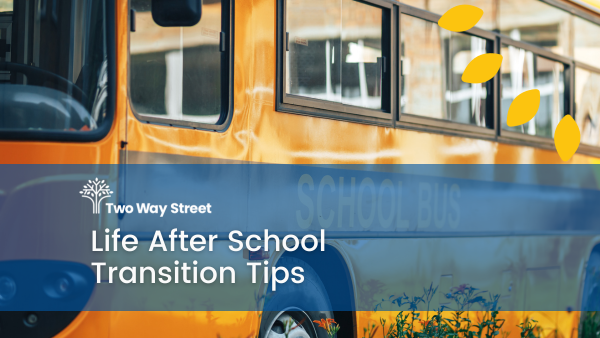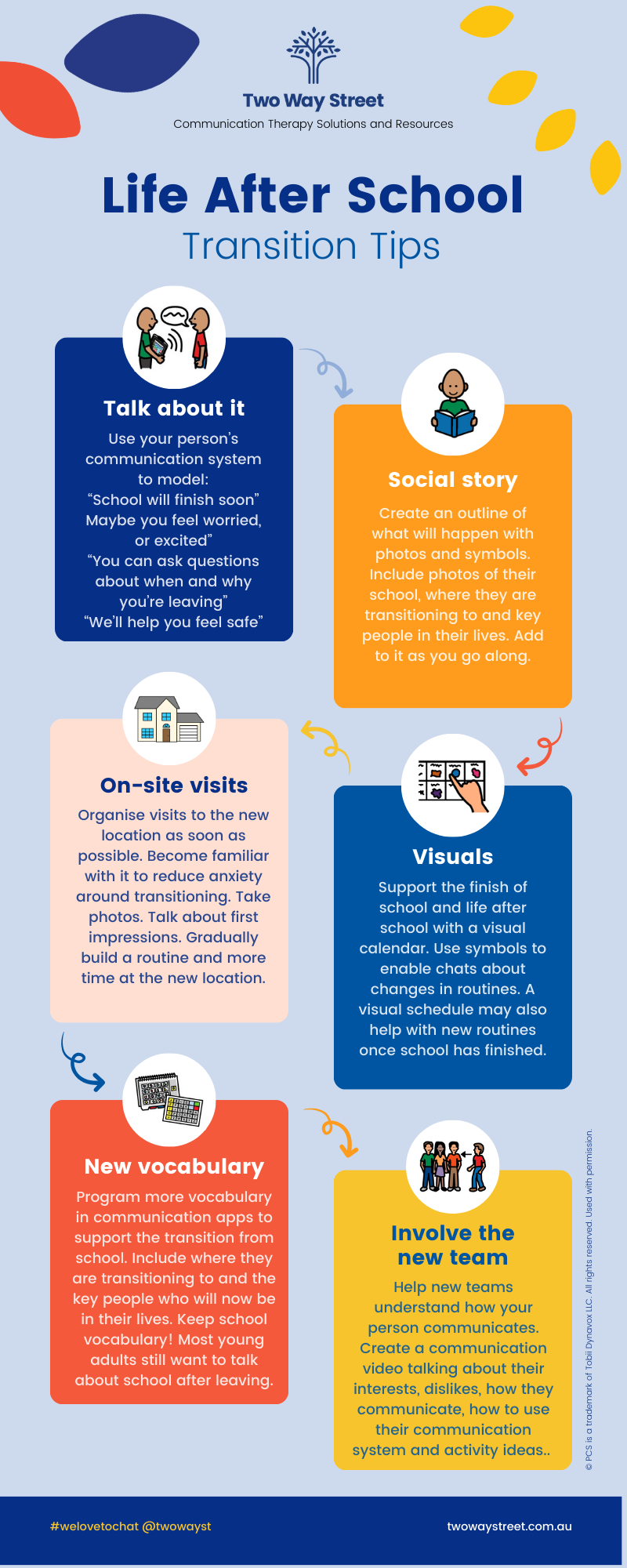AAC users24 October 2023

Most of us spend well over a decade of our younger lives at school. The transition from school to work, school to university – or to whatever life after school looks like – can be a tough one! And it becomes even more complex when you have a communication disability.
In this insight article, we share some strategies and ideas for you to help prepare your person to begin their new life after school, and be ready for whatever the future brings.
You don’t need to prepare anything for this, just talk as you normally would. If possible, use your person’s communication system to model the messages. Here are some ideas:
Create a story using Microsoft Word or the Pictello App outlining what will happen. Use photos and symbols. It’s ok if you don’t have all of the answers when you first introduce the story, you can add to it as you go along. Try to include photos of the school, your person and the key people in their lives. If you know where your person is transitioning to, whether it be further education, work or something else, start introducing this.
When you know where your person will be transitioning to after they finish school, organise some on-site visits as early as possible. It is important that the new setting, whether it is another educational facility, a workplace or somewhere else, becomes a familiar place for your person, to reduce anxiety they may experience about leaving school. Take photos if you can. Ask your person their thoughts about the visits each time they go. Try to gradually work up your days at the new location, so your person has an opportunity to get used to their new routine after school has finished.
A visual calendar is a great way to support the lead up to finishing school and the start of their life after school. This may help you to talk about changes in their routine with symbols. A visual schedule may also help your person with new morning or afternoon routines once school has finished.
Leaving school is a big change, so it is important to give your person access to the vocabulary they need to talk about it. If your person uses a communication app as part of their overall communication, you can program additional vocabulary to support the transition from school. Include the name of the place they are transitioning to once they leave school and the key people that will be in their lives. You could also create a chat page about the transition from school and questions that your person may ask. Be careful not to erase their school vocabulary. Most young adults still want to talk about school after they have left.
If your person is transitioning to a new place such as a workplace or day options program, it is important that their new team understand how they communicate. You, your person and/or your speech pathologist can create a communication video talking about:
These videos are an accessible and engaging way for others to get to know your person.
Once your person leaves school for the final time, find ways to stay connected and enable them to have conversations about their school experiences.
Learning doesn’t stop with school! Your person will have the opportunity to consolidate skills they have learned at school and pick up new skills on their post-school journey. Using these strategies, your person will be better prepared for life after school and empowered to embrace whatever the future holds. This is a new chapter full of possibilities and with your support and the right tools, your person will continue to thrive and grow in their own unique way.
Is your person already a client with Two Way Street? Talk to your Speech Pathologist about creating resources to support the transition from school.
Written by: Erin Morley, Speech Pathologist

